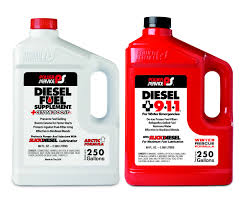Holiday events and celebrations can be exciting times for family and friends to come together. However, these gatherings can turn tragic if people are killed or injured in traffic accidents. As the holiday season approaches, motorists need to be mindful of actions that can make their holiday travel safer. Drivers can protect themselves and their passengers by following these holiday travel rules:
Before you start your trip, make sure your vehicle is tuned up and in good condition for travel, especially for winter driving conditions. Always ensure that you and your passengers are properly restrained with seat belts and car safety seats. Remember, the rear seat is the safest place for children of any age to ride.
Be flexible with your travel plans. Leave early if you can avoid peak traffic hours. If snow is predicted during the time you plan to travel, consider changing your schedule. It is better to reschedule your get-together than to risk the lives of your traveling family or friends.
Stay fresh and alert while driving. Take plenty of breaks and do not push yourself to meet an unrealistic schedule. If you get tired, pull off the road into a rest area or business. Get out of the car for some fresh air, buy something to refresh yourself, or just relax until you feel revived. If that doesn’t work, find a motel or campground where you can spend the night.
Forty-one percent of fatal traffic accidents are single-vehicle crashes. These crashes most
often occur during the late night/early morning hours and late afternoon, involving drivers who are tired, have consumed alcohol, or both.
Keep your speed down. Give yourself plenty of time and distance to react to traffic around you. Let impatient and aggressive drivers pass you or go through intersections ahead of you so that you can maintain control of the situation. Do not pass if you cannot see enough clear road to do so safely.
If there will be drinking at your holiday get-together, choose a designated driver who will remain alcohol-free. Because driving requires your full attention, pull off the road if you must use your cellular phone.
Alcohol, Drivers, and the Holidays!
Now is a good time to remind your drivers of the consequences of drinking during the holiday season and the potential effects on their CDL or operator’s license, as well as their employment with your company. Advise your drivers to use caution when consuming alcoholic beverages and to have a designated driver. This will not only protect their license and job but also safeguard the motoring public.
The FMCSA regulations are clear: a CDL driver who is convicted of being under the influence of alcohol, as defined by state law, while operating any type of motor vehicle will be
disqualified from operating a commercial motor vehicle for one year. A second conviction will result in a lifetime disqualification from operating a commercial motor vehicle.
When is Alcohol Use Prohibited?
Alcohol is a legal substance; however, the rules define specific prohibited alcohol-related conduct. The performance of safety-sensitive functions is prohibited under the following conditions:
- When using alcohol.
- When having a breath alcohol concentration of 0.04 percent or greater, as indicated by an alcohol breath test.
- Within four hours after using alcohol.
Additionally, refusing to submit to an alcohol test, or using alcohol within eight hours after an accident, or until tested (for drivers who are required to be tested), is prohibited.
Cold Weather is Here!
I know we addressed this back in September, but it’s worth repeating and reviewing with your drivers again. As I write this bulletin, it’s snowing in Chicago. This week, the Midwest is experiencing its first dose of measurable snow and below-freezing temperatures. Therefore, it's a good time to review how to take care of fuel and equipment during these conditions:
- Diesel supplement should be added to ultra-low sulfur diesel fuel when temperatures drop below 32°F.
- If your truck is equipped with an engine block heater, it should be plugged in when the temperature is below 32°F. Trucks that are not in use should be started and allowed to run every day to bring the unit up to its normal operating temperature.
- The initial start-up procedure should be as follows: Complete a pre-trip inspection, unplug the block heater, turn the ignition switch to "on," start the engine, and let it run until the engine reaches normal operating temperatures.
- For trucks equipped with air brakes, drivers should purge the air tanks daily. If the unit is equipped with an air dryer, bringing the PSI to 120 will automatically purge the system.
- If driving in snow, ice, slush, rain, etc., before parking for the day, lightly apply the brakes while the unit is moving to dry the brake shoes, drums, rotors, and pads to prevent them from freezing while parked.
- Make sure the windshield washer solvent is full and that all windows are clean.
- Remove any snow or ice buildup from steps and grab handles to prevent slips or falls.
When parking the unit, make sure that if heavy snow is forecast, the truck is not left parked in an outside dock or near a building overhang. Snow can drift off the building, causing excessive accumulation on top.
Fuel Additive Use During Cold Weather Conditions
As colder weather approaches, it’s important to use fuel additives to prevent fuel from gelling. Fuel additives should be added anytime the ambient temperature is below 32°F. Power Service and Penray are popular manufacturers of fuel additives, and both companies offer two different products available through Navistar and Idealease locations.
Power Service:
- The "Red Bottle" is Power Service 911, which is to be used only when the fuel in a unit has already jelled. It should NOT be used as a preventative measure to keep fuel from jelling.
-
Power Service Diesel Fuel Supplement + Cetane "White Bottle" should be added to the fuel at each fill-up when the ambient temperature is below 32°F.
-
This is the additive you should use regularly during the winter months.
Penray:
Winter Thaw Emergency Diesel Fuel Supplement
Dissolves already gelled fuel quickly and reduces clogging of fuel filters. It prevents ice crystal build-up in fuel lines and filters by dispersing moisture.
It eliminates hard starting, pounding, excessive smoking, and helps improve combustion. 100% compatible with low sulfur fuel and fuel blends.
Winter Thaw Emergency is ONLY TO BE USED when the fuel has already gelled!
Winter Pow-R Plus Diesel Fuel Supplement
ULSD compliant. Prevents the gelling of diesel fuel and ice crystal formation. Reduces the cold filter plugging point (CFPP) by as much as 30°F.
Helps enhance cetane, improve fuel economy, and utilizes HAFI® technology. It improves cold weather starting, stabilizes and prevents corrosion, reduces emissions, and improves lubricity.
NY Governor Announces Congestion Pricing to Start January 5 in NYC
New York Governor Kathy Hochul announced that a revised congestion pricing plan for cars and trucks entering Manhattan below 60th Street will begin on January 5, 2025.
Under the plan, cars will pay $9 in tolls once a day to enter the congestion zone, down from the previously proposed $15, which was postponed last June. Straight trucks will be charged $14.40, and articulated trucks will pay $21.60 during peak hours, between 5 a.m. to 9 p.m. on weekdays and 9 a.m. to 9 p.m. on weekends. Tolls will be 75% cheaper outside of peak hours.
The revised plan must still be approved by the Metropolitan Transit Authority (MTA) Board before it can be implemented. Additionally, several lawsuits are pending, challenging the congestion pricing plan. New Jersey Governor Phil Murphy has already issued a statement that his state will continue its litigation against the revised NYC pricing plan.
The congestion pricing plan is intended to reduce traffic in NYC and raise revenue for MTA transit activities, but it is opposed by President-elect Donald Trump.











